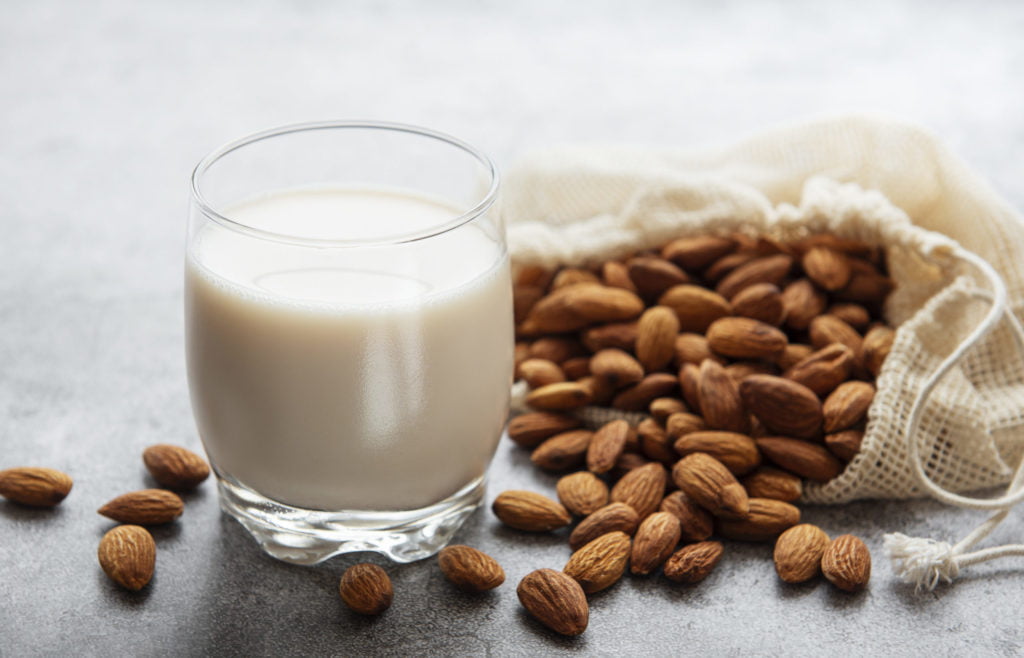Although they share a similar name, almond milk and cow milk are quite different in nature. Cow’s milk is a nutrient-rich liquid produced naturally by dairy cows. On the other hand, almond milk is an alternative product that isn’t really milk at all. Almond milk is made by blending water with crushed almonds. Cow’s milk is available in different varieties, including whole milk, 2 percent milk, 1 percent milk, and skim milk. Almond milk is available in unsweetened, sweetened varieties as well as in several flavored varieties.
In general, cow’s milk and other dairy products have been consumed across various cultures throughout history. While many benefits come from drinking cow’s milk, the fat, cholesterol, and lactose create problems for some people. As a result, plant-based milk alternatives such as almond milk have become more popular in recent times. Products like Strive For Better milk alternatives provide people with health concerns, allergies, or restrictive diets an alternative to cow’s milk. Some products even use non-animal whey protein, making their almond milk just as good, and in some cases, better than conventional milk.
There are many reasons to choose almond milk over cow’s milk. Keep reading to learn more about the benefits of almond milk.
Almond Milk vs. Cow Milk: A Nutritional Comparison

People generally seek almond milk as a healthier alternative to traditional milk. However, the two products are similar in many ways. Nutritionally speaking, almond milk is a good source of antioxidants, which can help protect the body from damage caused by free radicals. Additionally, almond milk also contains potassium, magnesium, calcium, and vitamin D and E, all of which are important for good health. Additionally, almond milk is a good source of polyunsaturated fatty acids, which are beneficial for maintaining heart health.
Lactose-Free
Almond milk is dairy-free, meaning that it doesn’t contain any lactose. This makes it a good option for people who are lactose intolerant. Lactose is a sugar molecule that is found in milk and other dairy products. It is the sugar that some people have difficulty digesting because they don’t produce enough of the lactase enzyme to break it down. Almon milk is completely dairy-free, making it a great alternative for people with lactose sensitivities. Additionally, because almond milk is dairy-free, it is also safe for people with a dairy allergy.
Calories
In general, a serving of unsweetened almond milk contains around 40 calories, while a glass of traditional whole milk has around 150 calories. The obvious benefit is that almond milk is the lower-calorie option. Almond milk is mostly made with water, so the difference in calories is the result of the limited amount of protein, carbohydrates, and fat in almond milk. However, cow’s milk also comes in lower-calorie options with 1 percent, 2 percent, and skim varieties. Even with various kinds of cow’s milk, almond milk wins out as a lower calorie option for those looking for a healthier diet.
Carbohydrates
Cow’s milk is a natural source of carbohydrates, specifically simple carbohydrates in the form of sugar. A glass of cow’s milk contains around 12 grams of carbohydrates. When paired with the number of calories present in a glass of regular milk, traditional cow’s milk might prove to be problematic for those on a restrictive diet. Conversely, unsweetened almond milk contains about 2 grams of carbohydrates, making it a lighter option.
Animal-Free

Like other milk alternatives, almond milk is animal-free which means that it’s a great option for people who are following a vegan or vegetarian diet. It is also good for those who are eco-conscious or interested in animal welfare. Almond milk is a sustainable product that doesn’t contribute to large dairy farms’ greenhouse gas emissions or animal treatment practices.
Overall, the benefits of almond milk over cow’s milk are significant. Almond milk is lower in calories and carbs and higher in healthy fats. It also contains numerous vitamins and minerals and is a great source of antioxidants. Almond milk is also dairy-free and gluten-free, making it a good choice for people with food allergies or sensitivities.


